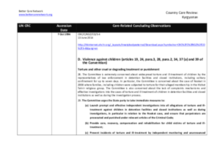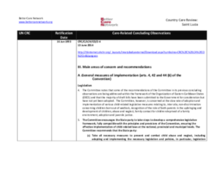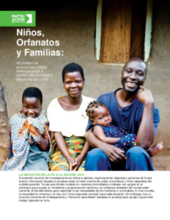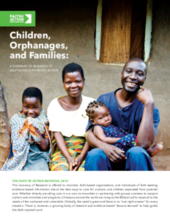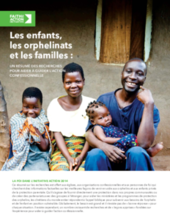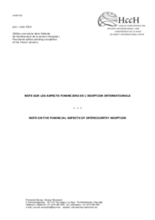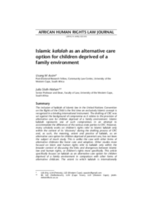Displaying 491 - 500 of 660
This piece, written by Aselefech Evans, a woman adopted from Ethiopia when she was five years old, addresses the issue of family preservation and international adoption.
In this chapter of the Handbook of Child Well-Being, the authors review the findings from research on the cognitive and social-emotional development of children growing up in institutions, foster care and adoption.
This article discusses the challenges in protecting Guatemalan children and their families from involuntary separation and presents the process, results and implications of a pilot training in which Guatemalan participants from government and civil society explored the efficacy and feasibility of the FGC model in their country.
This country care review includes the care related Concluding Observations adopted by the Committee on the Rights of the Child as part of its examination of the third and fourth periodic reports of Kyrgyzstan (CRC/C/KGZ/4-5) during its 65th Session at its 1880th and 1881st meetings held on 28 May 2014, and adopted, at its 1901st meeting, held on 13 June 2014.
This country care review includes the care related Concluding Observations adopted by the Committee on the Rights of the Child as part of its examination of the second to fourth periodic reports of Saint Lucia (CRC/C/LCA/2-4) during its 65th Session at its 1892nd and 1893rd meetings held on 6 June 2014, and adopted, at its 1901st meeting, held on 13 June 2014.
El presente resumen de investigaciones se ofrece a iglesias, organizaciones religiosas y personas de fe que buscan información basada en pruebas sobre la mejor manera de cuidar a huérfanos y niños separados del cuidado parental.
This Summary of Research provides a concise overview of a range of studies and findings that can inform approaches to caring for children who, through orphanhood, abandonment, or other causes, have been separated from parental care.
Ce résumé sur les recherches est offert aux églises, aux organisations confessionnelles et aux personnes de foi qui cherchent des informations factuelles sur les meilleures façons de venir en aide aux orphelins et aux enfants privés de la protecti
To address the issues related to the financial aspects of intercountry adoptions, the Hague Convention initiated an Experts’ Group, which met in October 2012 and produced nine Conclusions and Recommendations, which they brought to the Permanent Bureau to publish as a “Note”.
This article specifically focuses on kafalah as an alternative care option for children deprived of a family environment in comparison with other forms of alternative childcare.

